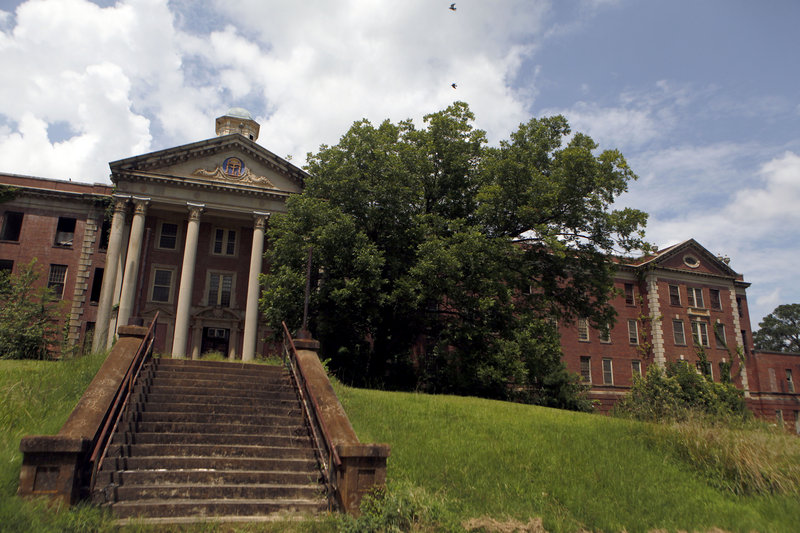MILLEDGEVILLE, Ga. – When a small technology firm sets up next month on the grounds where thousands of mentally ill patients used to be treated, it will be a watershed moment in efforts to redevelop Georgia’s Central State Hospital, a sprawling 2,000-acre campus on the brink of becoming obsolete.
For years, local officials have grappled with what to do with the massive property that includes some 200 buildings and encompasses a significant portion of this middle Georgia town where local officials cite a 13 percent unemployment rate.
They are not alone: Numerous state mental hospitals in the country have been closing in recent years in favor of a community-based approach to treat the mentally ill, which includes local housing and assistance programs.
“Big cities and small towns all have these huge institutions and are sort of struggling with what to do with them,” said Tom Murphy, a senior resident fellow at the Urban Land Institute, which studies land use nationally. “It can be a challenge, but there is a huge opportunity.”
What’s left behind is often a large piece of land and property that once employed hundreds if not thousands of local residents. As efforts to redevelop these state hospitals have had mixed results, Georgia is taking an innovative approach: analyzing communities that have rebuilt following the closing of a nearby military base while bringing in an expert to lead the process of emulating them.
“In 1968, this was the largest mental institution in the world. In those days, this was the engine that drove our entire community,” said Baldwin County Commissioner Henry R. Craig, a native of Milledgeville whose family has long been connected with the hospital. “Now that it is gone we’re not looking backward, we’re looking forward.”
Built in 1842, Central State was Georgia’s first public psychiatric hospital and once housed as many as 13,000 patients. At its height in the 1960s, it was like a small city with its own fire and police departments, school programs and a steam plant.
Today, wide streets lined with elegant pecan trees lead to Victorian-style buildings with broken-out windows and crumbling exteriors.
Juxtaposing that, on one road there are tidy houses occupied by state employees. On the edges of the campus, newer buildings recently used to house inmates are surrounded by wire fencing. Thousands are buried in nearby cemeteries.
The state has closed three major programs at Central State since 2009. The state Department of Corrections, which had taken over some of the buildings to house inmates, also moved out a few years ago.
The city took action around that time and began to form the basis of the redevelopment authority and hired Mike Couch, a native of Milledgeville who successfully worked on major redevelopment projects for communities surrounding Fort Benjamin Harrison near Lawrence, Ind., and Fort Sheridan in Lake County, Ill.
Both bases closed under the Base Realignment & Closure Commission process, also known as BRAC, and have largely flourished. Fort Sheridan has become a mostly residential community with townhomes listed for $500,000. Fort Benjamin Harrison was redeveloped into a residential and retail community as well as land set aside for Fort Harrison State Park and Golf Course.
Under the BRAC model, Couch says a critical first step was to get the community to accept that Central State was never coming back. Now, it’s a matter of getting the state-owned land transferred to the redevelopment authority. Legislation to start that process is expected to be submitted next year.
“The way the mental health care industry has changed in this state, it was not worth us fighting a battle to keep those buildings open,” said Couch, the authority’s executive director.
Send questions/comments to the editors.



Comments are no longer available on this story